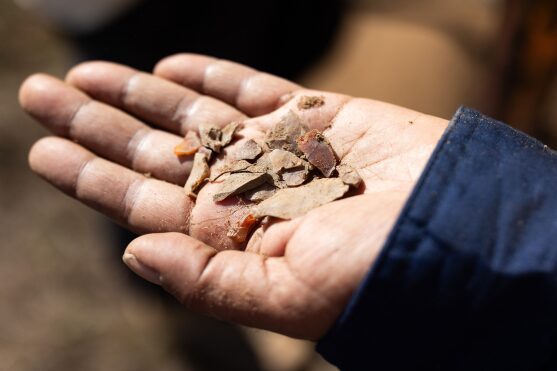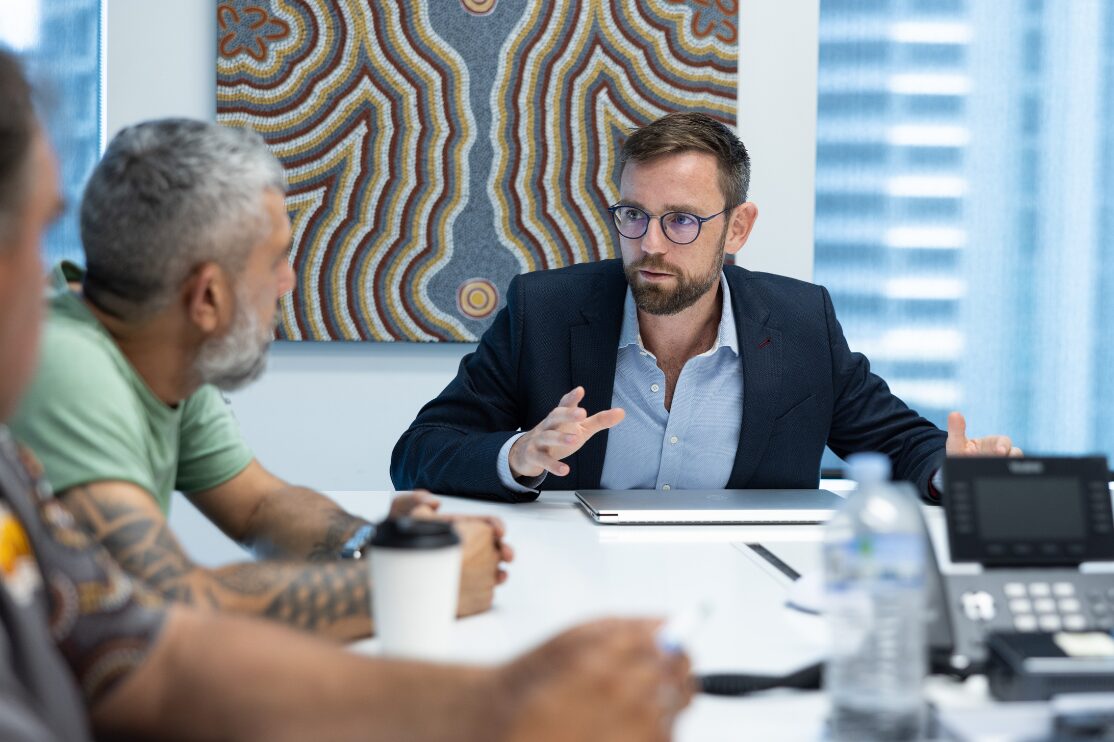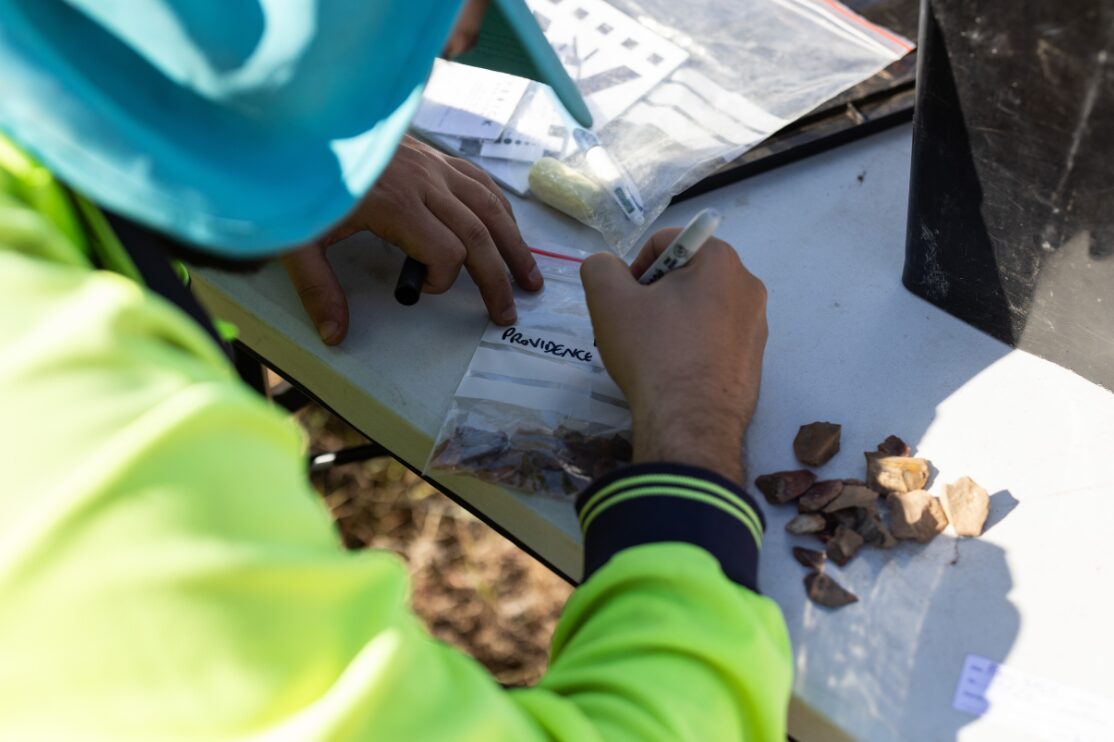Traditional knowledge and archaeology combine to help preserve First Nations heritage

The Everick Foundation uses archaeological services and scientific evidence, specifically the dating of culturally significant sites, combined with traditional knowledge systems to support First Nations communities preserve their culture and heritage in place, on Country.
This story was first published in Inspiring Stories of Giving Vol 2 in August 2024.
When it comes to documenting Indigenous heritage and understanding how First Nations people lived on the land for more than 65,000 years, Everick Benevolent Institution, trading as Everick Foundation, prioritises collaboration with Traditional Custodians who represent a strong line of cultural continuity between the past and present.
These communities face several challenges on their journey towards preserving their cultural heritage, which can include recording and dating their significant sites, and identifying and analysing culturally important artefacts and landscapes.
Across Australia, tensions are created between the cultural connections and obligations/responsibilities First Nations communities have with their Country and culture heritage and the competing prerogatives of various land users and stakeholders. The use of scientific evidence, specifically the dating of culturally significant sites, can support First Nations communities in their endeavours to preserve their heritage.
For more than two decades, Everick Heritage has been a leading cultural heritage consultancy, providing archaeological services for built heritage and First Nations heritage contexts for major infrastructure, mining, defence and residential projects. It was during this work that Managing Director Tim Robins (pictured below) observed the pressing need to facilitate capacity building opportunities for First Nations mobs so they were better equipped with the technical skills and disciplinary knowledge required to independently preserve their culture and heritage on Country.

Everick Foundation was subsequently founded, receiving DGR1 status in 2022. The Foundation builds and nurtures authentic and meaningful partnerships with Indigenous communities, assisting them to take important steps towards self-determination and ongoing economic success. Combining scientific, archaeological understandings with traditional cultural knowledge systems ensures holistic cultural and natural management of Country can take place.
“The goal is to give Indigenous communities the tools to manage and protect their heritage,” Tim said. “The history of Aboriginal occupation of this continent is incredibly complex. We’re talking 65,000+ years, and possibly much longer. Unfortunately, because we [non-indigenous Australians] really haven’t learned how to properly tell the stories that are written in the land, we’re destroying them at a vast rate. Everick Foundation’s purpose is to empower communities to better tell that story so people can understand the values before impacting on those sites.
“There’s a great sense of frustration and disempowerment within Indigenous communities about the heritage management process. The Foundation was created to meet the need for communities to take control of and manage the data around their heritage. The Foundation team is able to leverage the technical skills of our commercial team, to deliver this important work,” he said.
At a practical level, the Everick Foundation provides Indigenous communities with cutting-edge technology and web-mapping tools. The team also provides culturally appropriate, on-Country training in archaeological excavation and dating. Other priority areas of the Foundation include Truth-telling and Cultural Mapping, with their in-house videographer working with communities to record their cultural knowledge for future generations. There is also geospatial technical support given to mobs to create digital databases for the recording of significant sites, artefacts and landscapes.
David Conlon, a Yuggera Ugarapul man, admits that when he first met Tim, they were on different sides of the negotiating table in relation to the management of his mob’s land, leading to a relationship he describes as “quite confrontational”.
However, the pair ultimately found common ground while discussing their shared passions for an Indigenous-led cultural heritage industry. Tim explained how the Everick Foundation is committed to assisting this aspiration to become a reality.
“As we got to know each other over time, I think we shared similar values and principles as to the way cultural heritage should be managed,” David said. “That really strengthened our relationship to a point where Tim was very supportive of advocating and assisting traditional owner groups like mine in being able to build our capability within our own tribe to step away from having third party independent advice on looking after Country from technical advisers that we were employing.”

Everick Foundation and the Yuggera Ugarapul People have delivered community-led projects including the Black Summer Bushfire grant and on-Country training programs. Working with Queensland Parks and Wildlife, the Yuggera Ugarapul have developed a holistic, collaborative approach to future National Park fire risks and preserving cultural heritage, ensuring the resilience of the country against the worsening risks of climate change, while also providing training and jobs.
David is an instructive example of how self-determination can be achieved by Indigenous people, starting his own archaeology company, Cultural Heritage Wai, with mentorship support from Everick Foundation. “It was really an eye-opener that not many of our mob have had the opportunity to be out on Country and participate in cultural heritage assessment surveys or even archaeological excavation,” he said. “It was an aspiration of mine to take more initiative and more control on how we look after Country, and to have more of an involvement out in the field.”
David first sat down with his Elders to ensure he had their support. “I outlined what was wrong with having external and outside technical advisers, and it gave them peace of mind that we could sit here and complain and whinge about it, or we can take a step to demonstrate self-determination and to take control back definitely. I think that really resonated with our Elders. I was rather young, probably still am the youngest at that decision-making table, but knowing that what we’re doing is for our future generations, the Elders looked favourably upon me as a young person taking those steps in that direction.”